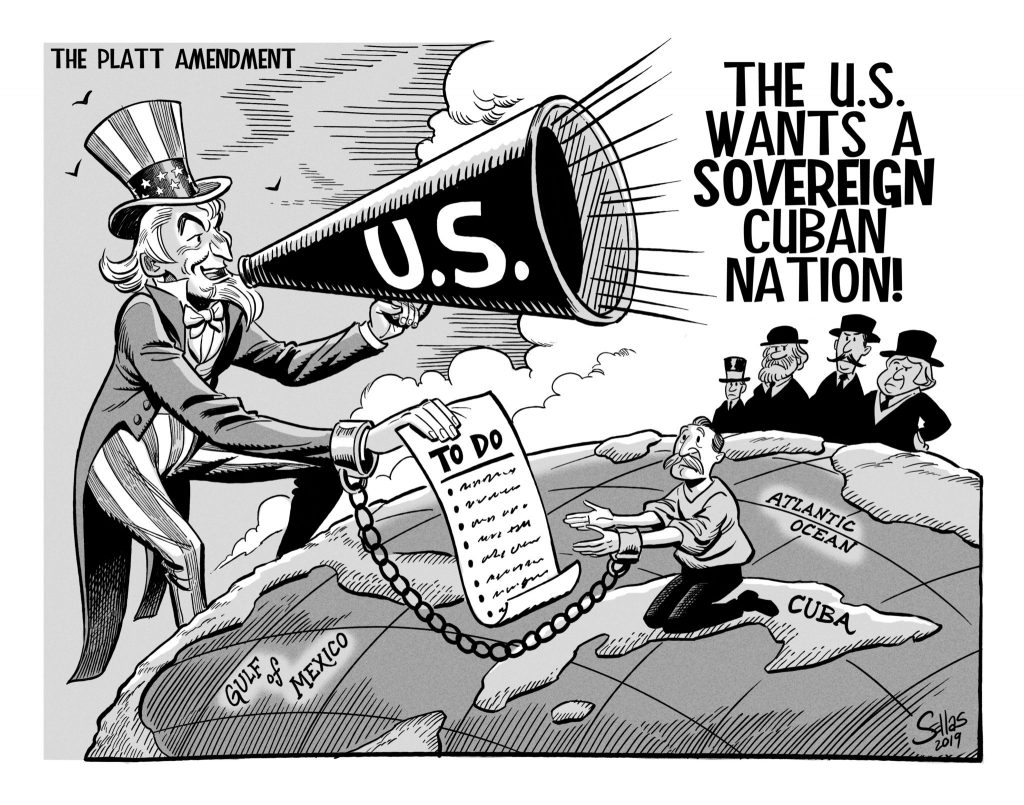
This document is the “Platt Amendment”, which is the resolution added in 1900 into the Constitution of the Republic of Cuba, determining the island to be a protectorate of the United States of America. It was drafted by Secretary of War Elihu Root and then presented in congress by Orville Platt. After being into regulation for 30 years, President Franklin D. Roosevelt relinquished it strategically, for it had become a source for resentment towards The United States political intervention, and consequently inspired Cuban nationalism.
Although, in 1901 the US Congress promised to “leave the government and control of the island of Cuba to its people”, it is nowhere near what actually occurred. Reading the eight articles of the amendment, one may be tempted to fall for Root’s good intentions on aiding Cuba to strive as an independent country, but history has taught us to know better. It is only when reading between the lines when we can see how blur the line between a protectorate and a colony may be. For instance, if the US had the right to add articles of Cuba’s constitution, can we really say it is protecting its independence?
Whether entitled with the right to intervene or not, the United States has exercised an unmatched power over many Latin American countries. Even today, whatever decision the country makes, it ends up making a significant impact on the neighbouring countries. This document evidences one of the different strategies to have an influence, in this case, in Cuba. However, there are many other cases which are way less apparent and, thus, way more difficult to grasp, such is the case of American influence in Argentina, for instance.
Elihu Root and Orville Platt. “Platt Amendment.” 1901. In American Empire at the Turn of the Twentieth Century, edited by Kristin Hoganson, 70-71. Boston: Bedford / St. Martin’s, 2017.